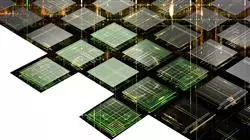University certificate
The world's largest faculty of information technology”
Introduction to the Program
Delve into programming languages, semantic models and cluster computing to gain a significant advantage in your career path"

In the current market there are a variety of tools to implement Distributed Computing systems. Two prominent examples of this are Microsoft Cloud Computing or Amazon Cloud Computing, both of which are cloud-based and have a number of very prominent reference architectures and functionalities.
The computer scientist who acquires advanced knowledge in this area, in addition to mastering the models and formal semantics of this area, will have an advantageous position to lead complex Distributed Computing projects. In such projects it will be necessary for you to develop your skills in the different distributed models, issues covered by this program along with parallel, monolithic or cooperative programming.
The format of the Diploma is completely online, which means that the student has the freedom to download the entire content from the first day. By eliminating face-to-face classes and fixed schedules, a preferential flexibility is achieved, together with a teaching load lightened by the numerous multimedia resources and complementary material to which the computer scientist will have access.
Sign up today and start perfecting your distributed architecture programming methodology"
This Postgraduate certificate in Models and Formal Semantics. Programming Oriented to Distributed Computing contains the most complete and up-to-date scientific program on the market. The most important features include:
- The development of case studies presented by experts in Parallel and Distributed Computing
- The graphic, schematic, and eminently practical contents with which they are created, provide practical information on the disciplines that are essential for professional practice
- Practical exercises where the self-assessment process can be carried out to improve learning
- Its special emphasis on innovative methodologies
- Theoretical lessons, questions for experts and individual reflection work
- Access to content from any fixed or portable device with an Internet connection
Position yourself as a highly skilled computer scientist in Distributed Computing, becoming proficient in Grid and Cluster computing"
The program’s teaching staff includes professionals from sector who contribute their work experience to this training program, as well as renowned specialists from leading societies and prestigious universities.
The multimedia content, developed with the latest educational technology, will provide the professional with situated and contextual learning, i.e., a simulated environment that will provide immersive training programmed to train in real situations.
This program is designed around Problem-Based Learning, whereby the professional must try to solve the different professional practice situations that arise during the academic year. For this purpose, the student will be assisted by an innovative interactive video system created by renowned and experienced experts.
Incorporate the most advanced Models and Formal Semantics in Distributed Computing to your daily work"

Choose how to distribute the entire course load, being able to study in the place and at the time you prefer"
Syllabus
The Relearning pedagogical methodology, used by TECH in a pioneering way, ensures that the computer scientist obtains a progressive and natural learning throughout the degree. This is achieved by reiterating in the different topics the fundamental concepts of Distributed Computing Oriented Programming. Thus, the student avoids a considerable investment of study hours, resulting in a more efficient academic experience.

Take the leap towards the most prestigious Distributed Computing thanks to all the contents of this Diploma"
Module 1. Models and Formal Semantics Distributed Computing Oriented Programming
1.1. Semantic Data Model
1.1.1. Semantic Data Models
1.1.2. Semantic Data Models Purposes
1.1.3. Semantic Data Models Applications
1.2. Semantic Model of Programming Languages
1.2.1. Language Processing
1.2.2. Translation and Interpretation
1.2.3. Hybrid Languages
1.3. Computing Models
1.3.1. Monolithic Computing
1.3.2. Parallel Computing
1.3.3. Distributed Computing
1.3.4. Cooperative Computing (P2P)
1.4. Parallel Computing
1.4.1. Parallel Architecture
1.4.2. Hardware
1.4.3. Software
1.5. Distributed Model Grid Computing
1.5.1. Grid Computing Architecture
1.5.2. Grid Computing Architecture Analysis
1.5.3. Grid Computing Architecture Applications
1.6. Distributed Model Cluster Computing
1.6.1. Cluster Computing Architecture
1.6.2. Cluster Computing Architecture Analysis
1.6.3. Cluster Computing Architecture Applications
1.7. Cluster Computing Current Tools to Implement It Hypervisors
1.7.1. Market Competitors
1.7.2. VMware Hypervisor
1.7.3. Hyper-V
1.8. Distributed Model Cloud Computing
1.8.1. Cloud Computing Architecture
1.8.2. Cloud Computing Architecture Analysis
1.8.3. Cloud Computing Architecture Applications
1.9. Distributed Model Cloud Computing Amazon
1.9.1. Cloud Computing Amazon. Functionalities
1.9.2. Cloud Computing Amazon Licences
1.9.3. Cloud Computing Amazon Architecture of Reference
1.10. Distributed Model Cloud Computing Microsoft
1.10.1. Cloud Computing Microsoft Functionalities
1.10.2. Cloud Computing Microsoft Licences
1.10.3. Cloud Computing Microsoft Architecture of Reference

Download all the contents of this Diploma, having full access to them for later use as reference material"
Postgraduate Certificate in Models and Formal Semantics. Programming Oriented to Distributed Computing
.
Nowadays, several tools are available in the market for the implementation of Distributed Computing systems, such as Microsoft Cloud Computing and Amazon Cloud Computing. If an IT professional develops advanced knowledge in this area, they will not only be able to master the models and the Formal Semantics of Distributed Computing, but will also have a competitive advantage in the management of complex projects of this nature. For this reason, the Postgraduate Certificate in Models and Formal Semantics. Programming Oriented to Distributed Computing, with which you will perfect skills related to the different models of Distribution and parallel, monolithic and cooperative programming.
Get up to date in the handling of a very complete repertoire of Models and Formal Semantics
.
Distributed models, semantic model of data, programming languages, computing... The study plan of this Postgraduate Certificate in Models and Formal Semantics. Programming Oriented to Distributed Computing is really comprehensive, always incorporating the latest advances in the field. But the best thing is that you will be able to get updated in all these aspects from anywhere thanks to its online modality, for which you will be able to organize the study sessions at your absolute convenience.







